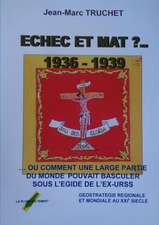Drift
Autor Rachel Maddowen Limba Engleză Paperback – 25 feb 2013
Written with bracing wit and intelligence, Rachel Maddow's Drift argues that we've drifted away from America's original ideals and become a nation weirdly at peace with perpetual war. To understand how we've arrived at such a dangerous place, Maddow takes us from the Vietnam War to today's war in Afghanistan, along the way exploring Reagan's radical presidency, the disturbing rise of executive authority, the gradual outsourcing of our war-making capabilities to private companies, the plummeting percentage of American families whose children fight our constant wars for us, and even the changing fortunes of G.I. Joe. Ultimately, she shows us just how much we stand to lose by allowing the scope of American military power to overpower our political discourse.
Sensible yet provocative, dead serious yet seriously funny, Drift will reinvigorate a "loud and jangly" political debate about our vast and confounding national security state.
Preț: 100.42 lei
Nou
Puncte Express: 151
Preț estimativ în valută:
19.21€ • 20.12$ • 15.90£
19.21€ • 20.12$ • 15.90£
Carte disponibilă
Livrare economică 15-29 martie
Livrare express 01-07 martie pentru 20.07 lei
Preluare comenzi: 021 569.72.76
Specificații
ISBN-13: 9780307460998
ISBN-10: 0307460991
Pagini: 275
Dimensiuni: 131 x 203 x 21 mm
Greutate: 0.25 kg
Editura: BROADWAY BOOKS
ISBN-10: 0307460991
Pagini: 275
Dimensiuni: 131 x 203 x 21 mm
Greutate: 0.25 kg
Editura: BROADWAY BOOKS
Notă biografică
RACHEL MADDOW has hosted the Emmy Awardߝwinning Rachel Maddow Show on MSNBC since 2008. Before that, she was at Air America Radio for the duration of that underappreciated enterprise. She has a doctorate in politics from Oxford and a bachelor’s degree in public policy from Stanford. She lives in rural western Massachusetts and New York City with her partner, artist Susan Mikula, and an enormous dog.
Extras
Chapter 1
G.I. Joe, Ho Chi Minh, and the American Art of Fighting About Fighting
thomas jefferson was a lifelong and habitual fretter. He was wary of animal foods, spirituous liquors, state religion, national debt, abolitionists, embittered slaves, unelected federal judges, Yankee politicians, Yankee professors, and Yankees in general. But his predominant and animating worry was the centralization and consolidation of power—in large banks, in closed and secret societies, and, most of all, in governments: the enemy within. “There are instruments so dangerous to the rights of the nation and which place them so totally at the mercy of their governors, that those governors, whether legislative or executive, should be restrained from keeping such instruments on foot, but in well-defined cases,” Jefferson wrote as the Constitution of the United States was being debated. “Such an instrument is a standing army.”
His feelings didn’t much change with time. In 1792 he wrote, “One of my favorite ideas is, never to keep an unnecessary soldier.” In 1799 he wrote to a political friend that he was “not for a standing army in a time of peace, which may overwhelm public sentiment.”
Classicist that he was, Jefferson was apt to bolster his arguments with well-polished (if not strictly accurate) examples of early Western history: “The Greeks and Romans had no standing armies, yet they defended themselves.?.?.?. Their system was to make every man a soldier and oblige him to repair to the standard of his country whenever that was reared. This made them invincible; and the same remedy will make us so.”
That’s at best a loose military history of Greece and Rome—they did rely at times on standing armies. But you see where he’s going with this. Jefferson acted on his pet “unnecessary soldier” idea when he became president in 1801. He cut the standing army by a third and left the defense against foreign invasion largely to a “well-regulated militia” under the control of the various states and localities. And he remained unmoved by what he viewed as alarmist and cynical calls for a large nationalized active military. “Were armies to be raised whenever a speck of war is visible in our horizon,” he warned Congress in his sixth annual presidential message, “we never should have been without them. Our resources would have been exhausted on dangers which never happened, instead of being reserved for what is really to take place.”
Jeffersonian prudence held sway in this country for a century and a half. The professional military was an institution of limited reach and power; in times of peace we kept the regulars busy building defense works and ports and bridges. Whenever we went to war in a big way, we went to war with citizen-soldiers; the small nucleus of an active-duty army swelled with militiamen, reservists, National Guardsmen, enlisted persons, and draftees. When the United States went to war, the entire United States went to war. And no nation’s military demobilized with such verve and velocity when the fighting was over. Hell, volunteers on the battlefields were legally separating themselves from the US Army while the Mexican War still raged in 1847. The War of 1812, the Creek War, the Civil War, the Spanish-American War, they were all the same: the clarion call to duty, the citizens’ eager answer, the victory parades (having picked our fights judiciously, we were, by the mid-twentieth century, something like 9ߝ0), and the return to home and hearth. Within eighteen months of the conclusion of World War I, Congress had completely dismantled the American Expeditionary Forces and reduced the active-duty military from four million soldiers back to the prewar number of less than three hundred thousand. The effect of tossing more than three million suddenly unemployed men back into an ailing job market did not have an altogether sanguinary effect on the national economy, or on the national mood?.?.?.?but hey, nobody ever said war was supposed to be a jobs program.
Mobilization for World War II was even larger, and the postwar drawdown nearly as dramatic. In 1945 there were twelve million people on active duty in the US Armed Forces; five years later, that number had dropped 88 percent, to just one and a half million. But that stunning demobilization had few concomitant dislocations. Call it the War-and-Peace Dividend or the World’s Greatest Stimulus Package. A country that left a Great Depression at home to confront the Axis powers overseas converted the massive government spending of the war effort into an unprecedented civilian economic boom when that war was won. Factories that had been making jeeps and warplanes and submarine engines and ammunition were now turning out new Chevrolet Bel Airs, Allis-Chalmers tractors, Cessna 170 airplanes, and Frigidaire iceboxes. It didn’t hurt our standing in the world economy that about one in five able-bodied young men in Germany and the Soviet Union had been killed in the war, and at least one in ten in Japan. And it didn’t hurt that the industrial cities of Japan and Germany (and much of Western Europe, for that matter) were smoking holes; of the 10.5 million cars manufactured worldwide in 1950, the United States made more than 8 million of them, and sold ’em all over the world.
We were a country that could afford to be generous to our returning veterans, and more than sixty years later we’re still reaping the benefits of that generosity. The postߝWorld War II GI Bill assured returning vets a year’s worth of wages whether they worked or not, and paid college tuition and a living stipend, too. Nearly half of the male students on college campuses in 1948 had been to war. The bill also offered low-interest government-guaranteed loans for buying a home. Housing construction and manufacturing boomed. The curve of GNP, household income, and personal spending trended up, up, and up.
The United States of America was a robust nation—a nation of means—and we rebuilt and reconfigured our institutions after World War II in a way that reflected this. Yes, the military demobilization after the war was massive and fast, but even the dramatically shrunk-down US military of 1950 was three times the size it had been before World War II—and with a big footprint. The US soldiers, sailors, airmen, and Marines, right alongside all those consumer goods, were already leading exports. We had 150,000 troops in the Far East, 125,000 in Western Europe, and a smattering in such diverse and far-flung locations as Panama, Cuba, Guatemala, Morocco, Eritrea, Libya, Saudi Arabia, Samoa, and Indochina. Wary as never before of the Communist threat—now a constant “speck of war visible in our horizon”—America had come to see Jefferson’s preoccupation with standing armies and threats from inside our own power structure as a bit moldy. We were, after all, the only country still capable of keeping the planet safe for democracy.
Through the fifteen years that followed World War II, we trusted our commanders in chief—Truman, Eisenhower, Kennedy, they’d all served!—to project our military power in measured and meaningful ways. We ratcheted up our extraordinary nuclear program, broke a Soviet blockade of Berlin with a dramatic airlift, beat the Commies back in Formosa and Thailand, fought them to a standstill in Korea, and stared down Khrushchev when our spy planes caught him red-handed putting missiles in Cuba. When President Kennedy decided to engage the Soviets in the space race, the nation’s finest military pilots were the chosen first team.
The United States military was an institution of unsurpassed public esteem, top to bottom. You could measure that regard in a hundred different ways. Take, for instance, the plaything metric. In 1964 one of the hottest new toys on the market was a doll, for boys: G.I. Joe.
There was not a whiff of peacetime, soon-to-be civilian in this toy; these were not Ken dolls in dress uniforms at the debutante ball. G.I. Joe was olive drab, M1 rifle, canned Spam, scar-faced, down-and-dirty. The hard-plastic soldiers (petroleum-based all the way) were built to take a pounding. In the spring of 1965, in GI Billߝbuilt suburbs from Levittown, New York, to Castro Valley, California, ten-year-old boys were digging miniature foxholes and jerry-rigging Dad’s old handkerchiefs to make paratroopers out of their new dolls. Hasbro had an instant hit; G.I. Joe did close to $20 million in sales that first year. Early indications pointed to steady growth.
But sales reports later in the ’60s made for unhappy reading in the Hasbro boardroom, and by the early 1970s the toy company found itself leaning on gimmicks to sell G.I. Joe. These included fuzzy flocked hair (they called it “realistic”), a nonregulation beard, colorful new uniform choices, swiveling “Eagle-Eyes,” and a fighting hand formed into a “Kung Fu Grip” (Bruce Lee had taken off by then). Hasbro folded G.I. Joe into “The Adventure Team?.?.?.?ready to go wherever adventure leads.” The company was at pains to minimize the militaryness of its military doll.
You can’t blame the Hasbro marketers and their sell-side analysts for having been optimistic in those first heady months of 1964. They were sure they were riding the long wave of good feeling for US soldierdom. How could they have known that the ground under G.I. Joe was beginning to shift, even in the happy springtime of his advent?
The first tectonic tremor came from the White House in the early months of 1965 when President Lyndon Baines Johnson began the prosecution of his own hot war in Vietnam. He had campaigned in ’64 by promising, “We are not about to send American boys nine or ten thousand miles away from home to do what Asian boys ought to be doing for themselves.” He’d painted his Republican opponent, Barry Goldwater, as a dangerous hair-trigger warmonger (with some help from Goldwater himself, who, in a May 1963 ABC interview, proposed dropping low-yield nuclear bombs on Vietnam to destroy supply lines and achieve “defoliation of the forests.” And why not? Among their many-splendored uses, nuclear explosions can be excellent pruners).
Yes, in 1961, Johnson’s predecessor John F. Kennedy had promised at his inauguration, “We shall pay any price, bear any burden, meet any hardship, support any friend, oppose any foe, to assure the survival and the success of liberty.” But Johnson’s promise was not Kennedy’s; Johnson promised to resist the expensive temptations of foreign wars and to build a Great Society at home instead. He promised not to escalate in Vietnam. He promised he would not allow the United States to get “tied down in a land war in Asia.” But then, despite the promises, despite his determination not to, Johnson got dragged to the conclusion that the United States needed to be fighting in Vietnam. He moved to convince the American people and Congress that he should have the authority to use military force there—the wildly exaggerated Gulf of Tonkin incident in 1964 would be the basis for the only congressional authorization Johnson ever sought for war. Then, with only halfhearted gestures toward trying to keep the country on board with a war he never really wanted to fight, Johnson set about trying to fight his war in a way the American people might hopefully not notice too much. “We don’t think we’ll ask for much money,” Johnson confided to the chairman of the Senate Armed Services Committee, Richard Russell, in the summer of 1965, as he made plans to increase the ground forces in Vietnam from 80,000 to 180,000, “because we don’t want to blow this thing up.”
LBJ “tried to fight a war on the cheap,” one of the Johnson administration’s key intelligence men, George A. Carver, would say years later, “and tried to fight a war without acknowledging that he was fighting a war.”
The agonized president was trying to thread a new and difficult needle: taking the nation’s armed forces to war without taking the nation as a whole to war. And central to that effort was one crucial decision. Against the advice of his secretary of defense and the Joint Chiefs of Staff, over the outright objection of the chief of staff of the US Army, Johnson simply refused to call up the modern parallel to those old Jeffersonian state militias, all those men living in our neighborhoods: the US Army Reserve and the National Guard. The Guard or Reserves had been called to fight in every American war in the nation’s history—even in the nonwar that was the Cuban Missile Crisis in 1963—but in Vietnam, Johnson hesitated. In part he was worried that a full-scale mobilization would draw the Russians and the Chinese into the war, but mostly he didn’t want to get Congress and the rest of the country all het up and asking too many questions.
“I don’t think I’ll have to call [the Reserves] up now,” he told Russell. “I think it’s too dramatic. I think it commits me where I can’t get out. And it puts me out there further than I wanna get right at the moment.?.?.?. You don’t think I oughta have a joint session, do you?”
“Not as long as you don’t call up any Reserves and all I wouldn’t,” Russell answered. The six-term senator from Georgia was sympathetic to the president’s predicament. (“I never worked on anything as hard in my life,” Johnson complained to the man who had been his mentor and champion in the Senate.)
“It woulda driven me mad,” Russell told Johnson. “It’s the only thing I’ve ever hit in my life I didn’t have some quick answer to, but I haven’t got one to this.”
But the seasoned senator also reminded Johnson that failing to mobilize the Reserves would send a signal to the Soviets, the North Vietnamese Communists, and the rest of the world that we lacked will. “It adds to ol’ Ho Chi Minh’s argument that we ain’t gonna stay in there, that we gonna pull out.?.?.?. Call up the Reserves, they understand that language. They understood it in Berlin. They understand that.”
“Well, if I extend the enlistments and if I put a hundred thousand out there they’ll understand it,” Johnson answered with a chuckle, though he did not meant to amuse. “And I’m gonna step up my draft calls. Double ’em.”
The draft wasn’t new for Vietnam; it had been plugging holes in the active-duty armed forces since 1917. For a president trying to flesh out a Vietnam fighting force without causing too much consternation, increasing the draft seemed a better choice than calling up Reserves. In 1965, the Guard and Reserves were the things you quietly signed up for to avoid service, and Johnson was already hearing from congressmen, who were hearing from prominent constituents, who were nowise interested in having their sons’ Guard and Reserve units called up to fight in some godforsaken war in the jungles of Southeast Asia. And Johnson agreed! This was, after all, not a major war, at least not a war with a major effect on the home front. And there was also Johnson’s hope that his war would be a US rout, soldiers in and out in a matter of months: Ho Chi Minh got anything to match this? Johnson supposedly bragged to reporters during a bathroom break.
G.I. Joe, Ho Chi Minh, and the American Art of Fighting About Fighting
thomas jefferson was a lifelong and habitual fretter. He was wary of animal foods, spirituous liquors, state religion, national debt, abolitionists, embittered slaves, unelected federal judges, Yankee politicians, Yankee professors, and Yankees in general. But his predominant and animating worry was the centralization and consolidation of power—in large banks, in closed and secret societies, and, most of all, in governments: the enemy within. “There are instruments so dangerous to the rights of the nation and which place them so totally at the mercy of their governors, that those governors, whether legislative or executive, should be restrained from keeping such instruments on foot, but in well-defined cases,” Jefferson wrote as the Constitution of the United States was being debated. “Such an instrument is a standing army.”
His feelings didn’t much change with time. In 1792 he wrote, “One of my favorite ideas is, never to keep an unnecessary soldier.” In 1799 he wrote to a political friend that he was “not for a standing army in a time of peace, which may overwhelm public sentiment.”
Classicist that he was, Jefferson was apt to bolster his arguments with well-polished (if not strictly accurate) examples of early Western history: “The Greeks and Romans had no standing armies, yet they defended themselves.?.?.?. Their system was to make every man a soldier and oblige him to repair to the standard of his country whenever that was reared. This made them invincible; and the same remedy will make us so.”
That’s at best a loose military history of Greece and Rome—they did rely at times on standing armies. But you see where he’s going with this. Jefferson acted on his pet “unnecessary soldier” idea when he became president in 1801. He cut the standing army by a third and left the defense against foreign invasion largely to a “well-regulated militia” under the control of the various states and localities. And he remained unmoved by what he viewed as alarmist and cynical calls for a large nationalized active military. “Were armies to be raised whenever a speck of war is visible in our horizon,” he warned Congress in his sixth annual presidential message, “we never should have been without them. Our resources would have been exhausted on dangers which never happened, instead of being reserved for what is really to take place.”
Jeffersonian prudence held sway in this country for a century and a half. The professional military was an institution of limited reach and power; in times of peace we kept the regulars busy building defense works and ports and bridges. Whenever we went to war in a big way, we went to war with citizen-soldiers; the small nucleus of an active-duty army swelled with militiamen, reservists, National Guardsmen, enlisted persons, and draftees. When the United States went to war, the entire United States went to war. And no nation’s military demobilized with such verve and velocity when the fighting was over. Hell, volunteers on the battlefields were legally separating themselves from the US Army while the Mexican War still raged in 1847. The War of 1812, the Creek War, the Civil War, the Spanish-American War, they were all the same: the clarion call to duty, the citizens’ eager answer, the victory parades (having picked our fights judiciously, we were, by the mid-twentieth century, something like 9ߝ0), and the return to home and hearth. Within eighteen months of the conclusion of World War I, Congress had completely dismantled the American Expeditionary Forces and reduced the active-duty military from four million soldiers back to the prewar number of less than three hundred thousand. The effect of tossing more than three million suddenly unemployed men back into an ailing job market did not have an altogether sanguinary effect on the national economy, or on the national mood?.?.?.?but hey, nobody ever said war was supposed to be a jobs program.
Mobilization for World War II was even larger, and the postwar drawdown nearly as dramatic. In 1945 there were twelve million people on active duty in the US Armed Forces; five years later, that number had dropped 88 percent, to just one and a half million. But that stunning demobilization had few concomitant dislocations. Call it the War-and-Peace Dividend or the World’s Greatest Stimulus Package. A country that left a Great Depression at home to confront the Axis powers overseas converted the massive government spending of the war effort into an unprecedented civilian economic boom when that war was won. Factories that had been making jeeps and warplanes and submarine engines and ammunition were now turning out new Chevrolet Bel Airs, Allis-Chalmers tractors, Cessna 170 airplanes, and Frigidaire iceboxes. It didn’t hurt our standing in the world economy that about one in five able-bodied young men in Germany and the Soviet Union had been killed in the war, and at least one in ten in Japan. And it didn’t hurt that the industrial cities of Japan and Germany (and much of Western Europe, for that matter) were smoking holes; of the 10.5 million cars manufactured worldwide in 1950, the United States made more than 8 million of them, and sold ’em all over the world.
We were a country that could afford to be generous to our returning veterans, and more than sixty years later we’re still reaping the benefits of that generosity. The postߝWorld War II GI Bill assured returning vets a year’s worth of wages whether they worked or not, and paid college tuition and a living stipend, too. Nearly half of the male students on college campuses in 1948 had been to war. The bill also offered low-interest government-guaranteed loans for buying a home. Housing construction and manufacturing boomed. The curve of GNP, household income, and personal spending trended up, up, and up.
The United States of America was a robust nation—a nation of means—and we rebuilt and reconfigured our institutions after World War II in a way that reflected this. Yes, the military demobilization after the war was massive and fast, but even the dramatically shrunk-down US military of 1950 was three times the size it had been before World War II—and with a big footprint. The US soldiers, sailors, airmen, and Marines, right alongside all those consumer goods, were already leading exports. We had 150,000 troops in the Far East, 125,000 in Western Europe, and a smattering in such diverse and far-flung locations as Panama, Cuba, Guatemala, Morocco, Eritrea, Libya, Saudi Arabia, Samoa, and Indochina. Wary as never before of the Communist threat—now a constant “speck of war visible in our horizon”—America had come to see Jefferson’s preoccupation with standing armies and threats from inside our own power structure as a bit moldy. We were, after all, the only country still capable of keeping the planet safe for democracy.
Through the fifteen years that followed World War II, we trusted our commanders in chief—Truman, Eisenhower, Kennedy, they’d all served!—to project our military power in measured and meaningful ways. We ratcheted up our extraordinary nuclear program, broke a Soviet blockade of Berlin with a dramatic airlift, beat the Commies back in Formosa and Thailand, fought them to a standstill in Korea, and stared down Khrushchev when our spy planes caught him red-handed putting missiles in Cuba. When President Kennedy decided to engage the Soviets in the space race, the nation’s finest military pilots were the chosen first team.
The United States military was an institution of unsurpassed public esteem, top to bottom. You could measure that regard in a hundred different ways. Take, for instance, the plaything metric. In 1964 one of the hottest new toys on the market was a doll, for boys: G.I. Joe.
There was not a whiff of peacetime, soon-to-be civilian in this toy; these were not Ken dolls in dress uniforms at the debutante ball. G.I. Joe was olive drab, M1 rifle, canned Spam, scar-faced, down-and-dirty. The hard-plastic soldiers (petroleum-based all the way) were built to take a pounding. In the spring of 1965, in GI Billߝbuilt suburbs from Levittown, New York, to Castro Valley, California, ten-year-old boys were digging miniature foxholes and jerry-rigging Dad’s old handkerchiefs to make paratroopers out of their new dolls. Hasbro had an instant hit; G.I. Joe did close to $20 million in sales that first year. Early indications pointed to steady growth.
But sales reports later in the ’60s made for unhappy reading in the Hasbro boardroom, and by the early 1970s the toy company found itself leaning on gimmicks to sell G.I. Joe. These included fuzzy flocked hair (they called it “realistic”), a nonregulation beard, colorful new uniform choices, swiveling “Eagle-Eyes,” and a fighting hand formed into a “Kung Fu Grip” (Bruce Lee had taken off by then). Hasbro folded G.I. Joe into “The Adventure Team?.?.?.?ready to go wherever adventure leads.” The company was at pains to minimize the militaryness of its military doll.
You can’t blame the Hasbro marketers and their sell-side analysts for having been optimistic in those first heady months of 1964. They were sure they were riding the long wave of good feeling for US soldierdom. How could they have known that the ground under G.I. Joe was beginning to shift, even in the happy springtime of his advent?
The first tectonic tremor came from the White House in the early months of 1965 when President Lyndon Baines Johnson began the prosecution of his own hot war in Vietnam. He had campaigned in ’64 by promising, “We are not about to send American boys nine or ten thousand miles away from home to do what Asian boys ought to be doing for themselves.” He’d painted his Republican opponent, Barry Goldwater, as a dangerous hair-trigger warmonger (with some help from Goldwater himself, who, in a May 1963 ABC interview, proposed dropping low-yield nuclear bombs on Vietnam to destroy supply lines and achieve “defoliation of the forests.” And why not? Among their many-splendored uses, nuclear explosions can be excellent pruners).
Yes, in 1961, Johnson’s predecessor John F. Kennedy had promised at his inauguration, “We shall pay any price, bear any burden, meet any hardship, support any friend, oppose any foe, to assure the survival and the success of liberty.” But Johnson’s promise was not Kennedy’s; Johnson promised to resist the expensive temptations of foreign wars and to build a Great Society at home instead. He promised not to escalate in Vietnam. He promised he would not allow the United States to get “tied down in a land war in Asia.” But then, despite the promises, despite his determination not to, Johnson got dragged to the conclusion that the United States needed to be fighting in Vietnam. He moved to convince the American people and Congress that he should have the authority to use military force there—the wildly exaggerated Gulf of Tonkin incident in 1964 would be the basis for the only congressional authorization Johnson ever sought for war. Then, with only halfhearted gestures toward trying to keep the country on board with a war he never really wanted to fight, Johnson set about trying to fight his war in a way the American people might hopefully not notice too much. “We don’t think we’ll ask for much money,” Johnson confided to the chairman of the Senate Armed Services Committee, Richard Russell, in the summer of 1965, as he made plans to increase the ground forces in Vietnam from 80,000 to 180,000, “because we don’t want to blow this thing up.”
LBJ “tried to fight a war on the cheap,” one of the Johnson administration’s key intelligence men, George A. Carver, would say years later, “and tried to fight a war without acknowledging that he was fighting a war.”
The agonized president was trying to thread a new and difficult needle: taking the nation’s armed forces to war without taking the nation as a whole to war. And central to that effort was one crucial decision. Against the advice of his secretary of defense and the Joint Chiefs of Staff, over the outright objection of the chief of staff of the US Army, Johnson simply refused to call up the modern parallel to those old Jeffersonian state militias, all those men living in our neighborhoods: the US Army Reserve and the National Guard. The Guard or Reserves had been called to fight in every American war in the nation’s history—even in the nonwar that was the Cuban Missile Crisis in 1963—but in Vietnam, Johnson hesitated. In part he was worried that a full-scale mobilization would draw the Russians and the Chinese into the war, but mostly he didn’t want to get Congress and the rest of the country all het up and asking too many questions.
“I don’t think I’ll have to call [the Reserves] up now,” he told Russell. “I think it’s too dramatic. I think it commits me where I can’t get out. And it puts me out there further than I wanna get right at the moment.?.?.?. You don’t think I oughta have a joint session, do you?”
“Not as long as you don’t call up any Reserves and all I wouldn’t,” Russell answered. The six-term senator from Georgia was sympathetic to the president’s predicament. (“I never worked on anything as hard in my life,” Johnson complained to the man who had been his mentor and champion in the Senate.)
“It woulda driven me mad,” Russell told Johnson. “It’s the only thing I’ve ever hit in my life I didn’t have some quick answer to, but I haven’t got one to this.”
But the seasoned senator also reminded Johnson that failing to mobilize the Reserves would send a signal to the Soviets, the North Vietnamese Communists, and the rest of the world that we lacked will. “It adds to ol’ Ho Chi Minh’s argument that we ain’t gonna stay in there, that we gonna pull out.?.?.?. Call up the Reserves, they understand that language. They understood it in Berlin. They understand that.”
“Well, if I extend the enlistments and if I put a hundred thousand out there they’ll understand it,” Johnson answered with a chuckle, though he did not meant to amuse. “And I’m gonna step up my draft calls. Double ’em.”
The draft wasn’t new for Vietnam; it had been plugging holes in the active-duty armed forces since 1917. For a president trying to flesh out a Vietnam fighting force without causing too much consternation, increasing the draft seemed a better choice than calling up Reserves. In 1965, the Guard and Reserves were the things you quietly signed up for to avoid service, and Johnson was already hearing from congressmen, who were hearing from prominent constituents, who were nowise interested in having their sons’ Guard and Reserve units called up to fight in some godforsaken war in the jungles of Southeast Asia. And Johnson agreed! This was, after all, not a major war, at least not a war with a major effect on the home front. And there was also Johnson’s hope that his war would be a US rout, soldiers in and out in a matter of months: Ho Chi Minh got anything to match this? Johnson supposedly bragged to reporters during a bathroom break.
Recenzii
One of the Washington Post’s 50 Notable Works of Nonfiction for 2012
One of Kirkus Reviews’ Best Nonfiction Books of 2012
"Thank Ms. Maddow for picking this and every other fight that Drift provokes. It will be a smarter public debate than the kinds we're used to."
—Janet Maslin, New York Times "A biting, bracing tour of the rise of American military bloat...Her fix-it ideas aren't facile or smiley-faced. They are a coda to the serious project she's taken on--a project that both plays to her persona and gives it new gravitas...Rachel, if you can get those ideas a serious hearing, you will be much more than TV's funniest wonk."
—Emily Bazelon, Slate.com
"Maddow’s distinctive voice in Drift is highly intelligent, often incredulous and intermittently and humorously profane...Her thesis, which is passionately and effectively articulated, remind[s] us of how far we have drifted from linking the sacrifices of our armed forces around the world to the citizens at home they so selflessly serve… Maddow…[has] provided readers with a timely and perhaps necessary provocation to examine the far-reaching consequences of the American way of war."
—Gordon M. Goldstein, Washington Post
"Crosses partisan lines and deals with issues that deserve a healthy debate...A compelling, intelligent read filled with Maddow's trademark wit."
—Mary Houlihan, Chicago Sun-Times
"Even though she's an ideological broadcaster, Maddow doesn't resort to demonization and hyperbole. It makes her case much stronger."
—Conor Friedersdorf, TheAtlantic.com
"Lively but serious...This book is a reminder that before Maddow became a face on nighttime television, she was a Rhodes scholar who earned a doctorate in politics at Oxford. But Drift is not heavy reading, and her cheerfully snarky voice is instantly recognizable...A thought-provoking and timely book."
—Scott Shane, New York Times Book Review
"Full of head-smacking stories about America's military meddling and muddling...Maddow sounds an alarm this country needs to hear more than almost any other."
—Catherine Lutz, San Francisco Chronicle
“Provocative...Asks fundamental questions about the process by which the U.S. now goes to war that pretty much never get asked by the media.”
—Wired.com
"Thoroughly researched...Written in her signature broadcast style--provocative, satirical, passionate-bordering-on-outrage...Progressive fans of her show may already know what to expect. Yet the book still surprises."
—Minneapolis Star Tribune
“Recommended reading...There's a deadly serious argument here that deserves way more attention than it gets.”
—Kevin Drum, MotherJones.com
“Engaging but sobering...With the same kind of substance, wit and charge that make her TV show a top-rated Emmy winner, Maddow details how dubious wars, the exploding "privatization" of the military and a superfunded, superpowered security leviathan have drained our resources...Sometimes it takes a gutsy, determined woman--a Nellie Bly, Rachel Carson, Ida Tarbell, Elizabeth Neuffer, Molly Ivins or Rachel Maddow--to hang a literary lantern on a revolting situation.”
—Austin American-Statesman
"Drift is infused with Maddow’s sharp wit and her vast political knowledge. She dexterously reveals how we became the nation that spends more money on militarism then all other nations combined...“The path to American amnesia is worth recalling on this Memorial Day,” wrote Tom Englehardt. If you want to jog your memory, I encourage you to dive into Maddow’s brilliant testament to remembering."
—MsMagazine.com
"Drift is a provocative, important book that displays all the qualities of its author: intelligence, humor, depth, and originality. Maddow raises vital questions about how the American ways of war have changed and endangered our democracy, but she does so without cant or predictability. America’s most charismatic liberal has crafted here an argument for skepticism about our military-industrial complex that will persuade many conservatives--a remarkable achievement."
—STEVE COLL, author of Ghost Wars
“With her savage wit, dazzling command of facts, and eye for the absurd, Maddow tells the epic story of how American warfare came to be both never-ending and practically invisible. In the process, she revives a radically old-fashioned idea: waging war should be wrenchingly difficult for a nation, for that is what prevents unnecessary battles from being waged. This courageous book deserves to spark a national debate about the purpose of war.”
—NAOMI KLEIN, author of The Shock Doctrine
“In Drift, Rachel Maddow brings her passion, wit, cool common sense and intellectual firepower to the epic and darkly farcical story of how America has declined into an overfunded and unchecked national security state--one that inflicts more damage on America’s assets, our military included, than it does on our adversaries. At a crossroads when Americans of all stripes are rethinking their country’s priorities, Maddow’s compelling take on how we drifted into the costly habit of perennial war--and how we might yet reverse it--could not be more timely.”
—FRANK RICH, writer-at-large, New York magazine
"Here's this conservative's assessment of Rachel Maddow's Drift: It's scathingly funny, deeply insightful, and informed throughout by a deep and abiding sense of patriotism. Bravo, Rachel!”
—ANDREW J. BACEVICH, author of Washington Rules: America's Path to Permanent War
"Written with the flair for scintillating satire that has endeared Rachel Maddow to liberals and moderates alike--and infuriated neo-conservatives, evangelicals, and some tea partiers--Drift is funny, rich, and right. But at its end, when you put it down, you will be troubled. We are losing our republic and Ms. Maddow tells you why."
—LAWRENCE WILKERSON, Professor of Government and Public Policy at the College of William and Mary and former chief of staff to Secretary of State Colin Powell
“America is in urgent need of a real debate over its addiction to sprawling militarism and endless war. It affects, and degrades, every aspect of national life: political, cultural, and economic. Nobody is better positioned to trigger that debate than Rachel Maddow, and that's exactly what she does in this startlingly insightful and well-written book. By stripping away the propaganda that distorts national security policy and laying bare its reality, Maddow has written one of those rare political books that can transform Americans' understanding of what their government is actually doing.”
—GLENN GREENWALD, columnist for Salon and author of Liberty and Justice for Some
“Rachel Maddow's Drift is a long overdue and provocative examination of the abuses, excesses and just plain foolish elements in our national security systems. These are issues that deserve our attention.
—TOM BROKAW, NBC News Special Correspondent and best-selling author of The Greatest Generation
“Drift never makes the case that war might be necessary. America would be weakened dramatically if we had underreacted to 9/11. However, Rachel Maddow makes valid arguments that our country has been drifting towards questionable wars, draining our resources, without sufficient input and time. People who like Rachel will love the book. People who don’t will get angry, but aggressive debate is good for America. Drift is a book worth reading.”
—ROGER AILES, Chairman and CEO, FOX News
“Drift is a serious and carefully-conceived piece of investigative reporting, illuminating a subject--the vast and mostly secret militarization of our society--that most Americans have no idea of, thanks in large part to the failure of many high-profile journalists to discuss it. Rachel has once again broken the mold and she should be immensely proud of this book, which is written in the same bright, clear, engaging style she brings to broadcast television.”
—MATT TAIBBI, author of Griftopia
“In Drift, people who love Rachel Maddow will discover that her gift for finding amazing anecdotes and funny, revealing details totally translates to the page. People who hate her may be surprised by how often in Drift she espouses some of the most conservative values: a suspicion of big government and unbridled federal power, a zeal to cut wasteful spending and a yearning to return to the intentions of the Founding Fathers.”
—IRA GLASS, host of public radio’s “This American Life”
“Brilliant book. Drift will stun Americans with its portrait of a hyperventilating United States that has produced too many real live Dr. Strangelove moments. Drawing from thoughtful, national interest-driven conservatives and not just the liberal establishment, Maddow makes the case that what ought to be a strong nation is instead risking shipwreck, by letting war and military matters escape real political and economic gravitational forces. Every page informs and angers at the same time.”
—STEVE CLEMONS, Washington editor-at-large, The Atlantic
One of Kirkus Reviews’ Best Nonfiction Books of 2012
"Thank Ms. Maddow for picking this and every other fight that Drift provokes. It will be a smarter public debate than the kinds we're used to."
—Janet Maslin, New York Times "A biting, bracing tour of the rise of American military bloat...Her fix-it ideas aren't facile or smiley-faced. They are a coda to the serious project she's taken on--a project that both plays to her persona and gives it new gravitas...Rachel, if you can get those ideas a serious hearing, you will be much more than TV's funniest wonk."
—Emily Bazelon, Slate.com
"Maddow’s distinctive voice in Drift is highly intelligent, often incredulous and intermittently and humorously profane...Her thesis, which is passionately and effectively articulated, remind[s] us of how far we have drifted from linking the sacrifices of our armed forces around the world to the citizens at home they so selflessly serve… Maddow…[has] provided readers with a timely and perhaps necessary provocation to examine the far-reaching consequences of the American way of war."
—Gordon M. Goldstein, Washington Post
"Crosses partisan lines and deals with issues that deserve a healthy debate...A compelling, intelligent read filled with Maddow's trademark wit."
—Mary Houlihan, Chicago Sun-Times
"Even though she's an ideological broadcaster, Maddow doesn't resort to demonization and hyperbole. It makes her case much stronger."
—Conor Friedersdorf, TheAtlantic.com
"Lively but serious...This book is a reminder that before Maddow became a face on nighttime television, she was a Rhodes scholar who earned a doctorate in politics at Oxford. But Drift is not heavy reading, and her cheerfully snarky voice is instantly recognizable...A thought-provoking and timely book."
—Scott Shane, New York Times Book Review
"Full of head-smacking stories about America's military meddling and muddling...Maddow sounds an alarm this country needs to hear more than almost any other."
—Catherine Lutz, San Francisco Chronicle
“Provocative...Asks fundamental questions about the process by which the U.S. now goes to war that pretty much never get asked by the media.”
—Wired.com
"Thoroughly researched...Written in her signature broadcast style--provocative, satirical, passionate-bordering-on-outrage...Progressive fans of her show may already know what to expect. Yet the book still surprises."
—Minneapolis Star Tribune
“Recommended reading...There's a deadly serious argument here that deserves way more attention than it gets.”
—Kevin Drum, MotherJones.com
“Engaging but sobering...With the same kind of substance, wit and charge that make her TV show a top-rated Emmy winner, Maddow details how dubious wars, the exploding "privatization" of the military and a superfunded, superpowered security leviathan have drained our resources...Sometimes it takes a gutsy, determined woman--a Nellie Bly, Rachel Carson, Ida Tarbell, Elizabeth Neuffer, Molly Ivins or Rachel Maddow--to hang a literary lantern on a revolting situation.”
—Austin American-Statesman
"Drift is infused with Maddow’s sharp wit and her vast political knowledge. She dexterously reveals how we became the nation that spends more money on militarism then all other nations combined...“The path to American amnesia is worth recalling on this Memorial Day,” wrote Tom Englehardt. If you want to jog your memory, I encourage you to dive into Maddow’s brilliant testament to remembering."
—MsMagazine.com
"Drift is a provocative, important book that displays all the qualities of its author: intelligence, humor, depth, and originality. Maddow raises vital questions about how the American ways of war have changed and endangered our democracy, but she does so without cant or predictability. America’s most charismatic liberal has crafted here an argument for skepticism about our military-industrial complex that will persuade many conservatives--a remarkable achievement."
—STEVE COLL, author of Ghost Wars
“With her savage wit, dazzling command of facts, and eye for the absurd, Maddow tells the epic story of how American warfare came to be both never-ending and practically invisible. In the process, she revives a radically old-fashioned idea: waging war should be wrenchingly difficult for a nation, for that is what prevents unnecessary battles from being waged. This courageous book deserves to spark a national debate about the purpose of war.”
—NAOMI KLEIN, author of The Shock Doctrine
“In Drift, Rachel Maddow brings her passion, wit, cool common sense and intellectual firepower to the epic and darkly farcical story of how America has declined into an overfunded and unchecked national security state--one that inflicts more damage on America’s assets, our military included, than it does on our adversaries. At a crossroads when Americans of all stripes are rethinking their country’s priorities, Maddow’s compelling take on how we drifted into the costly habit of perennial war--and how we might yet reverse it--could not be more timely.”
—FRANK RICH, writer-at-large, New York magazine
"Here's this conservative's assessment of Rachel Maddow's Drift: It's scathingly funny, deeply insightful, and informed throughout by a deep and abiding sense of patriotism. Bravo, Rachel!”
—ANDREW J. BACEVICH, author of Washington Rules: America's Path to Permanent War
"Written with the flair for scintillating satire that has endeared Rachel Maddow to liberals and moderates alike--and infuriated neo-conservatives, evangelicals, and some tea partiers--Drift is funny, rich, and right. But at its end, when you put it down, you will be troubled. We are losing our republic and Ms. Maddow tells you why."
—LAWRENCE WILKERSON, Professor of Government and Public Policy at the College of William and Mary and former chief of staff to Secretary of State Colin Powell
“America is in urgent need of a real debate over its addiction to sprawling militarism and endless war. It affects, and degrades, every aspect of national life: political, cultural, and economic. Nobody is better positioned to trigger that debate than Rachel Maddow, and that's exactly what she does in this startlingly insightful and well-written book. By stripping away the propaganda that distorts national security policy and laying bare its reality, Maddow has written one of those rare political books that can transform Americans' understanding of what their government is actually doing.”
—GLENN GREENWALD, columnist for Salon and author of Liberty and Justice for Some
“Rachel Maddow's Drift is a long overdue and provocative examination of the abuses, excesses and just plain foolish elements in our national security systems. These are issues that deserve our attention.
—TOM BROKAW, NBC News Special Correspondent and best-selling author of The Greatest Generation
“Drift never makes the case that war might be necessary. America would be weakened dramatically if we had underreacted to 9/11. However, Rachel Maddow makes valid arguments that our country has been drifting towards questionable wars, draining our resources, without sufficient input and time. People who like Rachel will love the book. People who don’t will get angry, but aggressive debate is good for America. Drift is a book worth reading.”
—ROGER AILES, Chairman and CEO, FOX News
“Drift is a serious and carefully-conceived piece of investigative reporting, illuminating a subject--the vast and mostly secret militarization of our society--that most Americans have no idea of, thanks in large part to the failure of many high-profile journalists to discuss it. Rachel has once again broken the mold and she should be immensely proud of this book, which is written in the same bright, clear, engaging style she brings to broadcast television.”
—MATT TAIBBI, author of Griftopia
“In Drift, people who love Rachel Maddow will discover that her gift for finding amazing anecdotes and funny, revealing details totally translates to the page. People who hate her may be surprised by how often in Drift she espouses some of the most conservative values: a suspicion of big government and unbridled federal power, a zeal to cut wasteful spending and a yearning to return to the intentions of the Founding Fathers.”
—IRA GLASS, host of public radio’s “This American Life”
“Brilliant book. Drift will stun Americans with its portrait of a hyperventilating United States that has produced too many real live Dr. Strangelove moments. Drawing from thoughtful, national interest-driven conservatives and not just the liberal establishment, Maddow makes the case that what ought to be a strong nation is instead risking shipwreck, by letting war and military matters escape real political and economic gravitational forces. Every page informs and angers at the same time.”
—STEVE CLEMONS, Washington editor-at-large, The Atlantic
Descriere
The #1 "New York Times" bestseller that charts America's dangerous drift into a state of perpetual war. Maddow argues that the U.S. has drifted away from America's original ideals and become a nation weirdly at peace with war and all the costs it entails.















